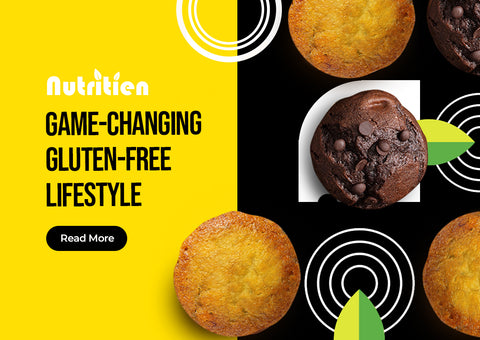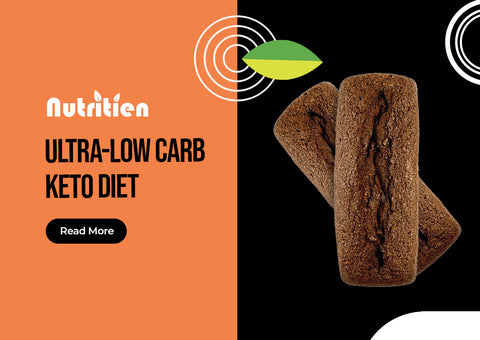Gluten-Free on a Nutritien makes gluten-free meals delicious and inexpensive. If they can do it with gluten, we can do it without gluten. Better than ever. You can never go wrong when combining chocolate and bananas into a tasty muffin.
Our delectable gluten-free chocolate muffins are dense and flourless. They are a delicious and nutritious snack or breakfast option! These delightful baked treats are gluten - and dairy-free, the perfect way to use those spotty bananas and chocolate chips. These chocolate muffins are packed with healthful, essential ingredients that give you energy throughout the day. However, you will not feel like eating a healthy recipe because these are delicious. It simply does not get any better than that! These gluten-free chocolate and banana muffins can be served as a healthy breakfast, brunch, or snack for children. They are rich in nutrients and fibre to keep you, and everyone who consumes them energized and satisfied. Our gluten-free chocolate chip & banana muffins are Made with a blend of gf and almond flour, lots of chocolate chips, and extra-ripe bananas, these are a sweet treat that your whole family will love! The muffins are soft and fluffy and made with less sugar. The sweetness comes from the overripe bananas and just a little bit of honey.
We conducted extensive testing for these chocolate & banana muffins until we identified the ideal, not-too-sweet blend of chocolate and bananas. We utilized overripe bananas, more banana flavour, and sour cream to offset the richness of the chocolate in a delightfully moist muffin. These muffins are a delicious addition to any well-balanced diet because they can be tailored to any dietary requirement. Moreover, these are excellent methods to satisfy your sweet taste, as they contain simple, healthy ingredients and less sugar.
Gluten-free products are currently and will continue to be a prominent trend in the bakery sector for many years. The gluten-free trend is not just a fad but also a lifestyle choice for many people. Gluten is found in wheat, rye, barley, and other grains. People with celiac disease or gluten sensitivities cannot consume foods with gluten because it can cause damage to the small intestine. Gluten-free products are becoming more common in bakeries and grocery stores because of the growing popularity of gluten-free diets.
Gluten is not generally regarded to be unhealthy for all individuals. Gluten has its advantages in the form of protein, but gluten may prove to be a nuisance for most people. Gluten consumption induces an immunological response that destroys a tiny portion of the small intestine. Especially if you have celiac disease, this could lead to poor digestion of food, which could cause several problems such as gas, bloating, stomach pain, weight gain, exhaustion, etc.
Many individuals believe that consuming or avoiding gluten can have significant effects on a variety of health-related factors. In addition, gluten-free product manufacturers emphasize their potential health benefits as a primary marketing strategy. As with any balanced diet, portion control and moderation are crucial for those with celiac disease who consume gluten-free foods. Additionally, daily exercise is required for managing and sustaining a healthy lifestyle.
A gluten-free diet is in no way a panacea for all diseases and conditions. Some individuals may struggle with celiac disease symptoms despite following a gluten-free diet. Keep in mind that the body requires time to heal. If you continue to experience symptoms over time, discussing them with your doctor is essential. But you can always begin by substituting gluten-free couscous for your regular couscous to determine if this positively affects your health. You have made the correct decision if you feel more energized, less bloated, and less exhausted. There is no denying that a gluten-free diet can be helpful for people who have celiac disease. However, it is essential to remember that a gluten-free diet is not the answer to all health problems and may not be appropriate for every individual.
Transitioning to a gluten-free diet can frequently feel daunting and frightening. Learning the dos and don'ts of gluten-free living, dining out, grocery shopping, and even discovering new recipes might feel especially scary. If you are currently on this page, you or a loved one was likely recently diagnosed with gluten intolerance. Alternatively, you are simply experimenting with something new to improve your health. We aim to help you navigate and feel secure in your gluten-free path moving ahead, regardless of what brought you to this page today.
Gluten-free alternatives of many commonly gluten-containing foods are widely available in most grocery shops, making it much simpler to stick to a gluten-free diet. However, keep in mind that minimally processed fresh foods are essential to a healthy gluten-free diet. It is necessary to base your diet on fruits, vegetables, lean meats, and the other healthy food groups outlined above. Many commercially available items are labeled "gluten-free," but some are not; therefore, it is essential to scrutinize labels. In addition, it is necessary to realize that "wheat-free" does not necessarily imply "gluten-free." Numerous goods may appear gluten-free but contain gluten.
Start your Gluten-free journey with Nutritien today!



